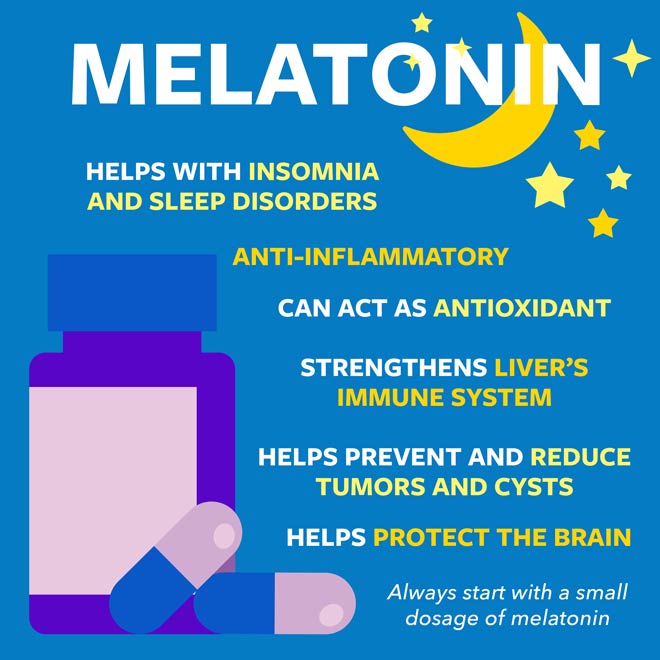The Benefits of Melatonin: A Comprehensive Guide
Welcome to our comprehensive guide on the benefits of melatonin. In this article, we will explore the various advantages of melatonin and how it can positively impact your health and well-being.
What is Melatonin?
Melatonin is a hormone naturally produced by the pineal gland in the brain. It plays a crucial role in regulating the sleep-wake cycle, also known as the circadian rhythm. Melatonin levels typically rise in the evening, signaling to the body that it is time to sleep, and decrease in the morning, promoting wakefulness.
The Role of Melatonin in Sleep
One of the primary benefits of melatonin is its ability to improve sleep quality. By taking melatonin as a supplement, individuals experiencing sleep difficulties, such as insomnia or jet lag, may find relief. Melatonin can help regulate sleep patterns, reduce the time it takes to fall asleep and enhance overall sleep duration.
Melatonin and Jet Lag
When traveling across time zones, our internal body clock can become disrupted, leading to jet lag. Melatonin supplements can help alleviate the symptoms of jet lag by adjusting the body’s circadian rhythm to the new time zone. By taking melatonin at the appropriate time, travelers can reduce the time it takes to adjust to the new sleep schedule and minimize the fatigue and disorientation associated with jet lag.
Antioxidant Properties of Melatonin
In addition to its role in regulating sleep, melatonin also possesses antioxidant properties. As an antioxidant, melatonin helps protect cells from damage caused by harmful molecules called free radicals. This protective effect may have various health benefits, including reducing the risk of chronic diseases such as heart disease and certain types of cancer.
Immune System Support
Melatonin has been found to play a role in supporting the immune system. It can enhance the production and activity of certain immune cells, helping the body defend against infections and diseases. Adequate melatonin levels are essential for a robust immune response, making it an important hormone for overall health and well-being.
Potential Anti-Aging Effects
Some research suggests that melatonin may have anti-aging effects. As an antioxidant, melatonin helps combat oxidative stress, a key contributor to aging. By reducing oxidative damage, melatonin may help slow down the aging process and promote healthier aging.

In conclusion, melatonin offers numerous benefits for sleep regulation, jet lag, antioxidant protection, immune system support, and potential anti-aging effects. By understanding the advantages of melatonin, individuals can make informed decisions about incorporating melatonin supplements into their wellness routines. As always, it is important to consult with a healthcare professional before starting any new supplement regimen.
Frequently Asked Questions about the Benefits of Melatonin
1. What is melatonin?
Melatonin is a hormone naturally produced by the pineal gland in the brain. It regulates sleep-wake cycles and plays a crucial role in maintaining a healthy sleep pattern.
2. How does melatonin help with sleep?
Melatonin helps regulate the body’s internal clock, making it easier to fall asleep and promoting a more restful sleep. It can be particularly helpful for individuals with insomnia or jet lag.
3. Can melatonin improve sleep quality?
Yes, melatonin can improve sleep quality by promoting deeper and more restorative sleep. It can also help individuals who have trouble staying asleep throughout the night.
4. Does melatonin have any antioxidant properties?
Yes, melatonin is a powerful antioxidant that helps protect cells from damage caused by free radicals. It has been shown to have neuroprotective and anti-inflammatory effects.
5. Can melatonin help with jet lag?
Yes, melatonin can help reduce the symptoms of jet lag by resetting the body’s internal clock. Taking melatonin supplements before bedtime in the new time zone can help adjust sleep patterns more quickly.
6. Is melatonin safe for long-term use?
Melatonin is generally considered safe for short-term and long-term use when taken at appropriate doses. However, it’s always best to consult with a healthcare professional before starting any new supplement.
7. Can melatonin be used to treat insomnia?
Melatonin can be an effective treatment for insomnia, especially for individuals who have difficulty falling asleep. It can help regulate sleep patterns and improve overall sleep quality.
8. Does melatonin have any side effects?
Melatonin is usually well-tolerated, but some individuals may experience mild side effects such as drowsiness, headache, or nausea. These side effects are typically temporary and subside with continued use.
9. Can melatonin be used to alleviate symptoms of seasonal affective disorder (SAD)?
Melatonin supplementation may help alleviate some symptoms of seasonal affective disorder, such as sleep disturbances and mood changes. However, it should be used in conjunction with other recommended treatments.
10. Is melatonin suitable for children?
Melatonin can be used for children with certain sleep disorders or conditions, but it’s important to consult with a pediatrician before giving melatonin to a child. Proper dosage and timing are crucial for their safety and well-being.




